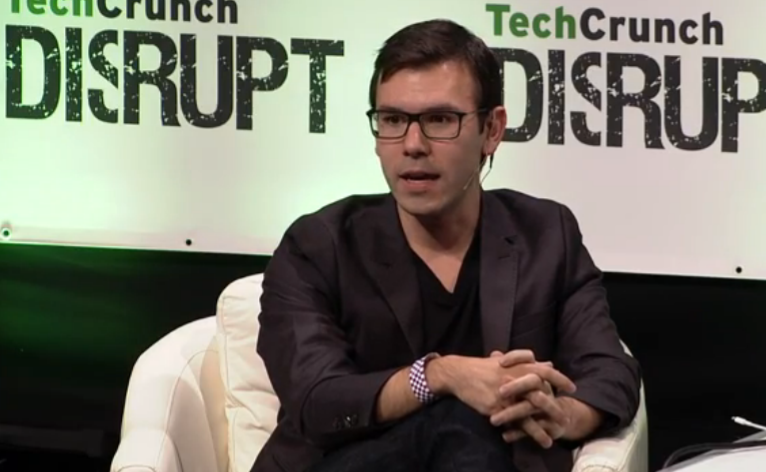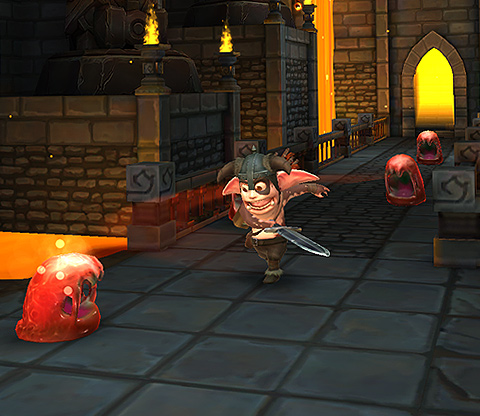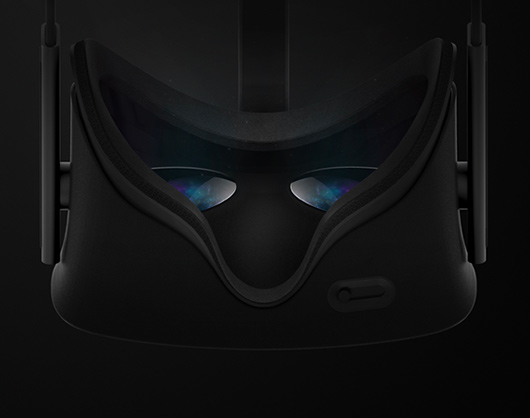Oculus Making Its Own Games For The Rift, Possible Gamepad Coming
In addition to the exciting news that the Oculus Rift will be available Q1 2016, Oculus' Nate Mitchell took the stage at TechCrunch's Disrupt to drop some more juicy news nuggets about the company, its VR headset, and the various related experiences.
Homegrown Titles
First, he said that Oculus is making its own titles for the Rift. This only makes sense; in the same way that Microsoft, Sony and Nintendo publish their own titles, Oculus is creating some content for its own device.
This helps in multiple ways. First, as Mitchell noted, it takes some of the risk off of developers. They know that there is other content for their titles to hang out with, and Oculus can generate some momentum for adoption that will help third-party devs get their games out into the hands of consumers. Oculus can also set the tone, as it were, for what great content on the Rift can and should be.
Homegrown content is also a must because content in general is a must. When we saw the Oculus Rift Crescent Bay demo back at CES in January, the Rift seemed consumer-ready to us. We asked Brendan Iribe why it wasn't for sale yet, and his response boiled down to the fact that there's just not enough content.
He made the point that if you're low on content, users may be blown away by what they see at first, but they'll soon put the Rift down and walk away if there aren't more adventures to experience.
The first title in Oculus' arsenal is HeroBound, a third-person dungeon crawler-type game. The mobile version has been around for a while for the Gear VR, but Mitchell hinted that this will soon be a "full" title for the Oculus Rift.
Input Methods
Mitchell also talked about input for the Rift. While stating that Oculus will have more to say about input later this year, he noted that "No one has cracked the code in input yet."
Get Tom's Hardware's best news and in-depth reviews, straight to your inbox.
He's right, but Oculus does seem to be behind in that regard. For example, you can't see your hands at all in the Rift, but you do get a facsimile of them in the Vive VR thanks to physical controllers. Leap Motion is also working on technology that will let you see your actual hands using a faceplate mounted onto a VR headset and what amounts to a high-speed infrared camera.
We presume that the final consumer version of the Rift will ship with controllers of some kind. Mitchell said that many VR experiences under development at present are geared towards gamepads, so it stands to reason that Oculus will be making its own.
Mitchell said that third-party peripherals are also coming, but they may take a while to hit the market. He said there needs to be standardized input and tech specs for those to work, which seemed to indicate that said input and specs are still being finalized.
In terms of input, there's a longer-range plan, too. Oculus' Research Division, headed by Michael Abrash, is looking at how input will develop and evolve over a 4-10 year span. The group is asking, "What will VR input look like down the road?" and also "What do we want it to look like?" Mitchell described Oculus' approach as a "diverse input strategy."
But What Will It Cost?
Although we now know approximately when the Rift will launch, we still don't know much of anything about the price. Mitchell dropped some hints, though. He said that Oculus wants the Rift to be "affordable," but of course it will still be a premium product -- in the "high-end range," he said.
Users will also need a gaming PC (the Oculus Rift is essentially a mega-peripheral), but it only needs to be able to run newer titles reasonably well. He said that users won't need an exceptionally high-end PC.
Finally, although the Rift will be available to buy directly from Oculus, Mitchell hinted that there will be a second retail experience, possibly in-store.
The need for such a physical presence is patently obvious. We can only describe our closed-door VR experiences to you, our readers, so well. If a picture is worth a thousand words, a VR experience is worth a million. You simply have to experience these things for yourself.
We'll look forward to more news from Oculus throughout the year, particularly from E3 in June.
Seth Colaner is the News Director at Tom's Hardware. Follow him on Twitter@SethColaner. Follow us @tomshardware, on Facebook and on Google+.
Seth Colaner previously served as News Director at Tom's Hardware. He covered technology news, focusing on keyboards, virtual reality, and wearables.
-
Want to know why developpers aren't interested to make software for the oculus? Because it's not on the market. I wouldn't risk money for a platform that might never make it to shelves either.Reply
-
skit75 I was a hater.... Then I had a chance to tinker with DK1 and while it still isn't something for me, there is an audience or industry for this. With the new kits including noise-cancelling audio into the headset/goggles the immersion into VR land is intense. I wouldn't say developers aren't interested. More like, they would like a platform to develop for that isn't changing so rapidly. Oculus developing their own content is just extra incentive when the target stops moving.Reply -
photonboy Another game controller?Reply
Why not just support the existing controllers? I think supporting the XBOX 360, One, and Steam controllers are plenty.



